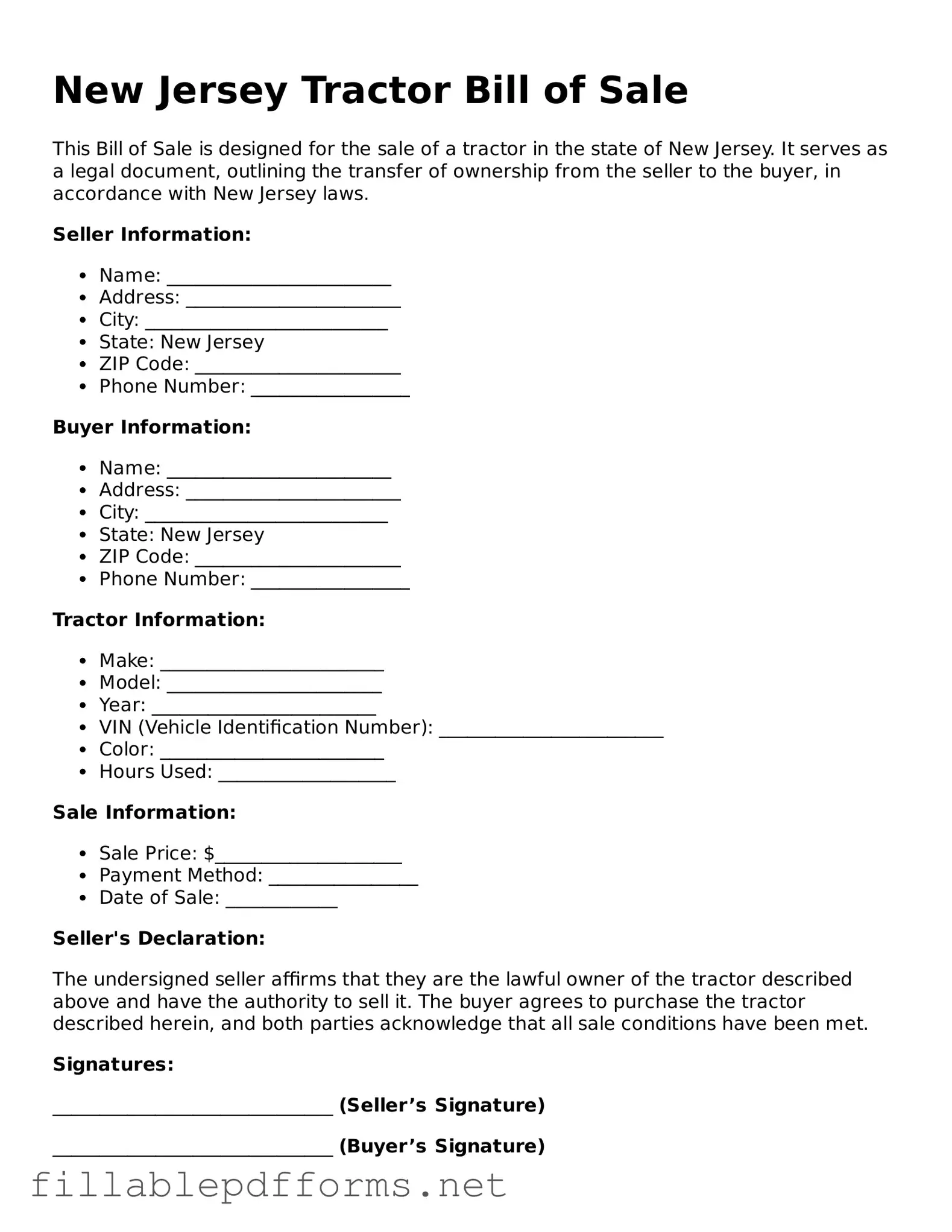Attorney-Verified Tractor Bill of Sale Form for New Jersey State
The New Jersey Tractor Bill of Sale form is a legal document that serves as proof of the sale and transfer of ownership of a tractor. This form outlines essential details about the transaction, including the buyer, seller, and tractor specifics. Understanding its importance can help ensure a smooth transfer process and protect both parties involved.
Launch Editor Here

Attorney-Verified Tractor Bill of Sale Form for New Jersey State
Launch Editor Here

Launch Editor Here
or
▼ Tractor Bill of Sale PDF
Almost there — finish the form
Complete Tractor Bill of Sale online fast — no printing, no scanning.